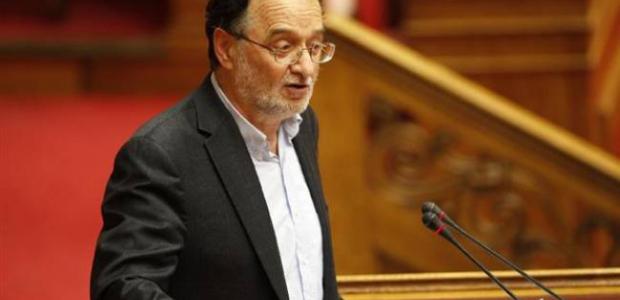Despite the government’s acknowledgement of the need to reduce energy costs for the industrial sector, as has been clearly expressed by Production Reconstruction, Environment and Energy Minister Panagiotis Lafazanis on numerous occasions, measures are not being implemented for a variety of reasons.
Most recently, Last Friday, the minister, responding to a question in Greek Parliament about electricity tariffs for state-controlled general mining and nickel producer Larco, Greece’s second largest power consuming facility, noted that “the cost of energy must be reduced considerably for all enterprises, whether operating in the private or public sectors, as it is unbalanced compared to other European countries.”
Certain plans, such as the introduction of NOME-type auctions for the electricity market, are being delayed by the uncertainty of the bailout talks, while others, like the “power disruption management” – to enable energy cost savings for major-scale industry in exchange for shifting energy usage to off-peak hours whenever required by IPTO, the power grid operator – are not making progress as a result of the inability by officials to determine who will shoulder the cost.
Without a doubt, the longer these delays last, the greater the pressure will be by enders for the cancellation of a 20 percent discount for industrial consumers, a move decided recently at a PPC (main power utility) general meeting.
Energy cost reduction requests by SEV, the Hellenic Association of Industrialists, are being largely ignored. The association has called for a reduction of a special consumption tax (EFK) imposed on natural gas used in electricity producton and industry. It has pushed for the implementation of “power disruption management” contracts with industrial consumers, as well as the incorporation of Environmental and Energy State Aid Guidelines (EEAG) into the local legal framework.
Essentially, the country stands where it stood on these matters prior to last January’s snap elections that brought leftist Syriza to power. Worse still, the government is beginning to push forward some revisions selectively, to the benefit of certain enterprises.
An example of this is the Phosphoric Fertilizers Industry (PFI), Greece’s largest chemical company, to be exempted from the special consumption tax (EFK) imposed on natural gas consumed for production purposes, as part of a mini tax reform bill.
The bill exempts, from the tax, enterprises relying entirely on natural gas for their production purposes. Effectively, PFI is the only industrial enterprise that relies so heavily on natural gas as a production-related energy source. PFI produces ammonium nitrate, a process for which the chemical company consumes considearable amounts of natural gas, representing 90 percent of the final product’s total cost. PFI can expect to save about ten million euros per year on energy costs as a result of the measure.
Industry authorities have stepped in to remind of the results found by a study published last March by IOBE, the Foundation for Economic and Industrial Research, its theme being tax reduction on natural gas and the impact on the Greek economy. The study concluded that a considerable special consumption tax decrease on natural gas could boost the country’s GDP by 754 million euros, create 12,500 jobs, and reduce electricity cost production by about two percent.
For the time being, none of the aforementioned issues seem to be on the government’s agenda. Any selective moves being made, such as the gas-related tax cut benefiting PFI, are sending negative signals to the market.





